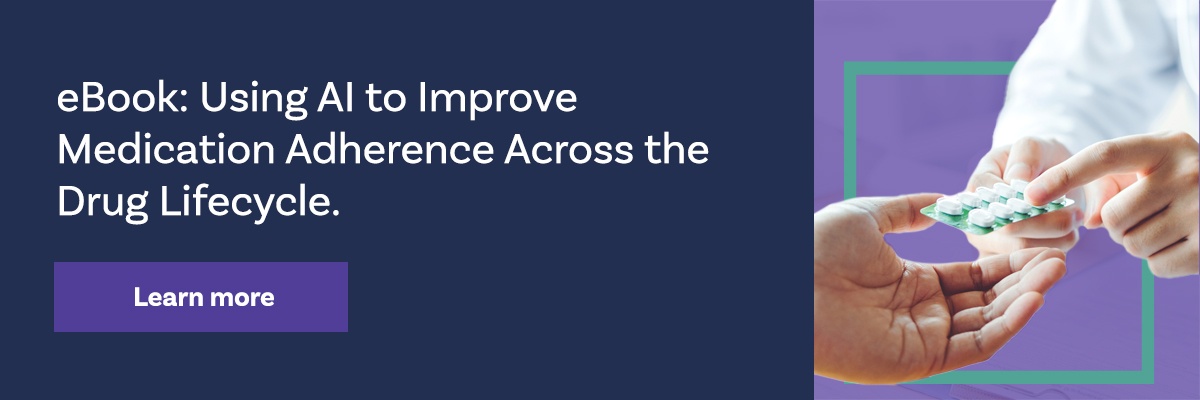In the pursuit of greater medication initiation and adherence, embracing the next wave of digital transformation is key for pharma and healthcare companies.
Despite initial hesitation around adopting next-generation technology, more pharma marketing and patient support leaders are investing in innovative solutions, such as artificial intelligence (AI), predictive analytics, and machine learning to better engage their patients and gain a competitive advantage. The industry is predicted to spend $1.2 billion on data analytics by 2030. But what’s behind the sudden clamor?
By necessity, COVID-19 can largely be credited with this rapidly accelerating digital innovation. In fact, 74 percent of healthcare organizations surveyed by Statista believe the pandemic has served as a catalyst for urgent digital transformation and in a Pharmaceutical Technology poll, 35 percent of respondents said it had expedited progress within pharma by at least five years.
Nowhere is digital transformation’s potential impact clearer than when it comes to patient CRM and support programs – with AI leading the way in maximizing medication behaviors.
Current State of Pharmaceutical Patient Support Programs
Pharma patient support programs are designed to positively impact patient medication behaviors, improve initiation and adherence, and deliver better health outcomes. Although traditional programs are somewhat effective at promoting medication adherence, many could be refined further with the right approach and technology.
Despite manufacturers spending more than $5 billion on patient support programs annually, less than 50 percent of patients take their prescribed medication by month six. The question is, why are most existing patient support programs suboptimal at best? Where are they missing the mark?
It comes down to data, technology, and personalization. Most patient support programs are solutions fitted for personas or segments rather than individual patients. In other words, they are tailored to groups and not to each individual or customized by channels, messaging, timing, and cadence. As a result, these programs tend to offer a more linear patient experience for most people, failing to capture all the possible paths a patient population may have.
Because they are not driven by advanced analytics or modern technology like AI, these patient support initiatives often lead to missed opportunities to proactively engage and assist patients, not to mention their design is often simplistic at brand launch. As the drug and the program mature, additional touchpoints are added, making it challenging to navigate without the correct tools.

Improving Medication Adherence With Digital Transformation
Digital transformation in the pharma industry is crucial to enhance the quality of patient care, boost patient engagement, and raise medication initiation and adherence. Pharma companies now recognize the shortcomings of existing patient support initiatives and are exploring how AI can make them more cost-efficient and effective.
By aggregating information from various data sources, AI predicts who may be at risk of non-adherence, personalizes patient communications to each individual’s unique needs and preferences, and maximizes the impact on first fills and refills – an invaluable result for pharma brands.
Not only can AI direct the best channels to reach the patient, it can also provide direction in terms of the content of the messaging, its timing, and the frequency to achieve the best possible impact and encourage lasting, positive medication behaviors.
AI continuously learns from new data and the patient’s reactions to the outreaches, enabling patient support programs to evolve as they grow and mature
Join Pharma’s Digital Transformation With Allazohealth’s Ai
Don’t get left behind. With AllazoHealth’s AI solution in your digital toolbox, you can transform your patient marketing and patient support programs, predict problems before they occur, personalize patient communication, and maximize medication initiation and adherence, delivering better health outcomes for all.

